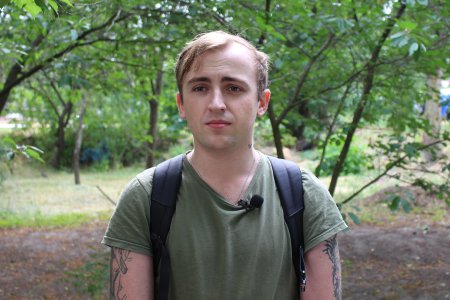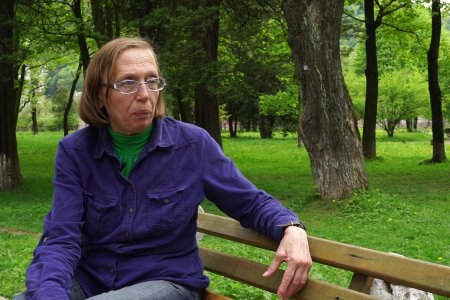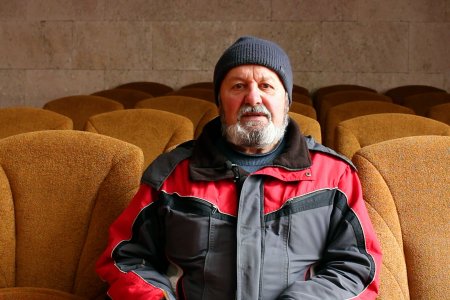Last night at home
On 24 February, we were at home. We lived in an apartment in the center of Sloviansk; I was on maternity leave for four years. By then, I had two children, and now I have three. My husband has a disability, but he worked at a confectionery factory. We learned from TV that a full-scale war had begun. I didn’t think a war would happen, so we weren’t going anywhere. At first, we thought it would pass quickly.
In the first days, we learned about events only from the news, and in March, hostilities began in Izium and Lyman. Then explosions began to be heard, and sometimes shells whistled overhead. While we remained in Sloviansk, we had power, and food was delivered. But there were long queues everywhere. If they brought something into one store, people would immediately run there and sweep away everything. They tried to get food and ran home quickly. Banks were closing in the city; everyone knew the city could soon be on the front line. The air raid siren rarely went off during both day and night. When the siren was buzzing, and there was a boom in the distance, everyone was scared. Many began to go down to the basements.
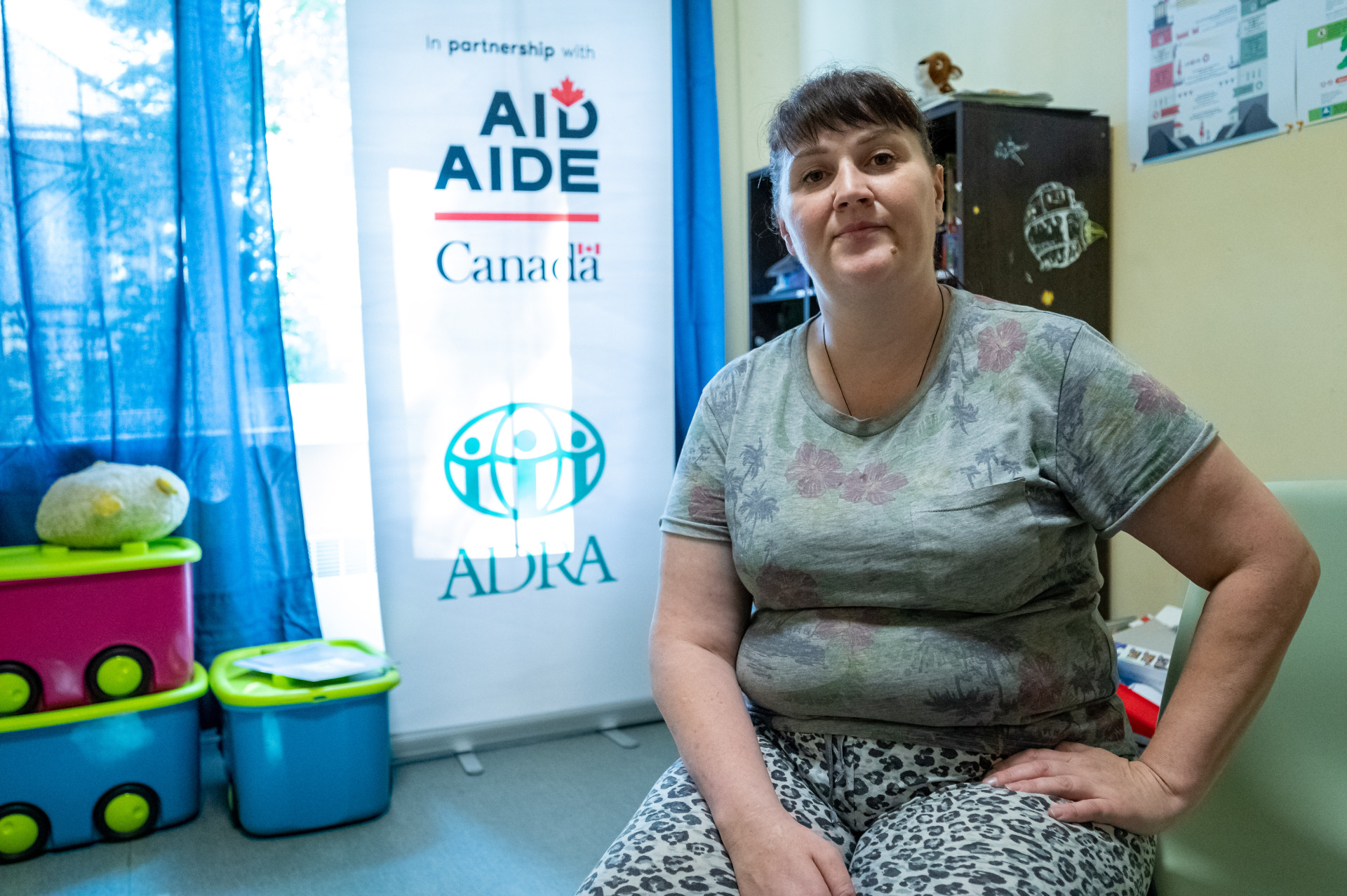
At the beginning of April, battles were already taking place near Sloviansk. We spent most of our time in the apartment. But one day, when it began to fly overhead very often, we all went down to the basement. I realized that this was bad for small children. Then we decided to leave the city and returned home to pack our things. We didn’t linger because we realized that the front was getting closer. I didn’t want to risk the children’s well-being. We are adults, and children are an entirely different matter. We spent the night at home for the last time, and on the morning of 7 April, we boarded the train. On 8 April, we were in Lviv.
11 or 12 people were traveling in one compartment
When we arrived at the Sloviansk station, there were many people there. It was packed with women, children, and disabled people. Everyone was waiting for the train from Kramatorsk, which was six hours late. We were told we could leave if there were enough seats, but if not, we would have to wait for the next train. We arrived right on time; we were lucky, and half an hour later, the train arrived, and boarding began. Women and children were allowed through first.
11 or 12 people were traveling in one compartment. Four of us had to sleep on the same berth with the children. When we approached a new stop, the lights turned off, and I began to tremble. It’s challenging mentally. Our train traveled to Kramatorsk, and then three trains got stuck in one place. The railway track was damaged by shelling. We were waiting for it to be repaired. We reached Lviv after 26 hours.
Then I didn’t consider whether we were going for a long time. Wherever the first train was, we went there. There was only one thought: to run away as quickly as possible. We rushed to virtually nowhere, without money, without anything. I wanted to flee as quickly as possible not to hear or see this war.
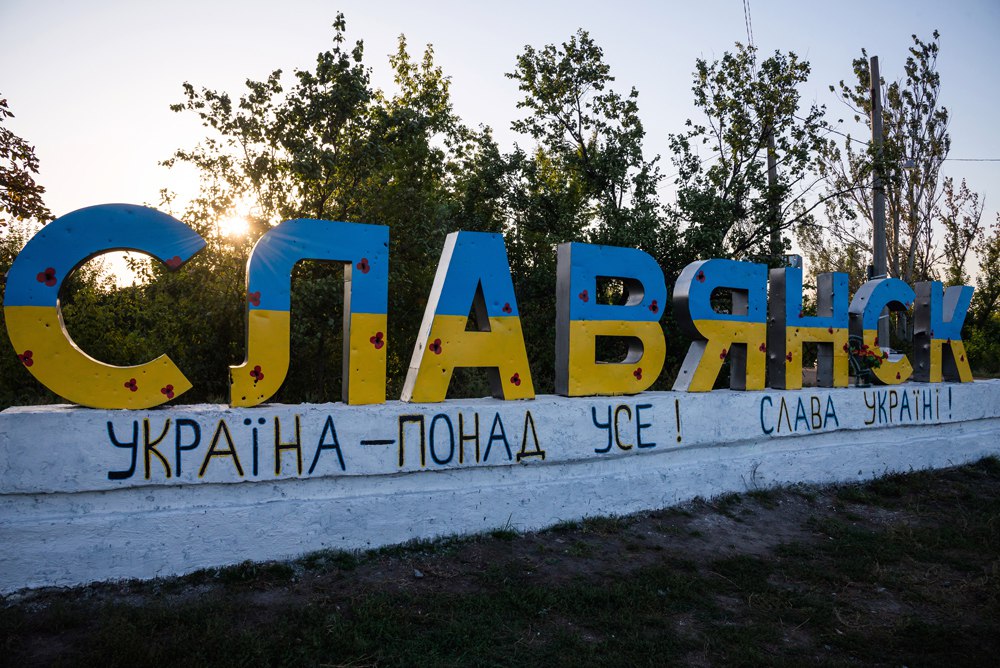
You have to choose: either pay rent and not eat or eat and look for free housing somewhere
In the Lviv Region, we were first placed in a kindergarten and then taken to Stryi, where we lived in a camp. Then, through volunteers, they found us a room. Later, we got into a program for displaced people; philanthropists paid the rent for our housing. This is how we survive for a year and a half.
Our housing has survived in Sloviansk, but we have no plans to return home yet. Some city residents are going back, but I’m afraid because Bakhmut is nearby. It is unknown what will happen in the future. Now, the front has moved away, but it may return. We will not return home until the war is over.
Renting housing is very expensive in Lviv. We have three children, and my husband is disabled. You won’t be able to afford payments for IDPs [Internally Displaced Persons] for long. You can survive if you don’t have to pay rent. Therefore, you have to choose: either pay rent and not eat or eat and look for free housing somewhere. I think we will soon go abroad and not stay in Ukraine and will try to arrange our life there. You can wait for the return, but who knows how long you must wait?
